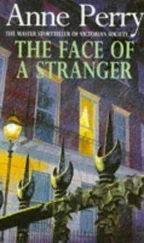“A tie?” He seemed wide awake now. His eyebrow raised.
“When somebody looks at you, if he thinks, ‘patient,’ then he might think, ‘Which patient?’ If he does, we’re in trouble.” She took his left wrist and removed the hospital’s plastic ID bracelet, then slipped it into her bag. “Now we’re going to stand up.”
She raised him to his feet and knelt to pull his pants up. She buttoned and zipped them, then carefully slipped the sport coat over his left arm, then his right. She could tell that he was hurting, in spite of the painkillers, so she eased him back down before she opened her bag and took out the polishing kit she had stolen from the dead man.
“What’s that?”
“Hair coloring,” she lied.
“Do we have time for that?”
Jane moved around behind him and opened the can of brown shoe polish. “We’ll make time. It combs in, like this.” She began at the top of his head and worked downward, sticking the comb into the dark brown shoe polish and combing it into his hair. “When I asked Carey to describe you, the gray hair came up. He’s not very observant—at least the way a cop is—because he’s never been afraid, never looked at people suspiciously. And the hair is about all any of the others know about you, so put up with it.”
Jane took off her plastic gloves, then stayed behind him while she took off the pale green hospital clothes and put on her skirt and blouse.
“What are you doing?”
“Disguising myself as a normal person.” She stuffed the surgical clothes, the hospital gown, the shoe polish, and the gloves into the bag Carey had given her, and raised Dahlman to his feet again. “Do you think you can walk?”
He said, “I think so.”
Jane held his good arm and steered him out into the hallway, then around a pair of sharp corners and into another wing. She kept whispering in his ear. “We’re going out through oncology. They don’t schedule chemotherapy or radiation at night here, and any cancer specialists would be upstairs, where the patients are. But we might meet someone. If we do, can you walk by yourself?”
“Yes,” he said. “Not very well, but I can present like a chemo patient. Notable pallor, physical weakness, nausea.” He moved forward for a few seconds, then added, “Hair that looks like a toupee.”
Jane found a trash can and discarded the shoe polish, then a wheeled laundry bin and left the hospital gown and surgical outfit in it She glanced at her watch. It had been almost an hour since she had left Carey, and thirty-five minutes since Dahlman had gone into surgery. Dahlman’s golden time was dwindling to nothing. She kept him moving as steadily as she dared down the long, empty hallways, past offices and labs that had closed doors and darkened windows, but each step was short and deliberate. Her mind kept bounding ahead, bursting forward to consider each foot of the corridor they still had to cross.
They passed an alcove with a big window and she turned her head to look out. There was nothing out there but the driveway and a cinder-block wall, and the blackness threw a bright, sharp-edged reflection back at her. She kept exerting the steady, gentle pressure on Dahlman’s good arm. Her mind carried the sight of their reflection like a snapshot, and she studied it.
She could detect no errors so far. Whatever Carey’s anesthesiologist had shot into Dahlman seemed to be wearing off. He bent over a little as he walked, but he didn’t look as though he was protecting a bullet wound. The waxy brown polish had covered his gray hair, and it looked as though he had slicked it down with the kind of greasy stuff that some men his age actually used. The coat and tie helped. Dahlman looked like a man who had just come from visiting a patient, and Jane could easily be his daughter.
Jane led him around another corner and she could see the rectangle of the glass door ahead. Through it she could make out a few feet of dimly lighted sidewalk, and then inviting darkness. She wanted to push him, to get out of the light, away from the hospital before something happened. But suddenly there was movement in the darkness, and it startled her. In a second she could see that there were two men coming up the walk toward the door.
She let go of Dahlman’s arm. “Walk by yourself. Do the best you can.” She spoke evenly and forced her face into a smile as she glanced at the old man. From a distance, she knew, it would look as though they were having a pleasant chat.
“What is it?” Dahlman whispered. “What’s wrong?”
She looked at him as though he had said something clever. “Two men coming up the walk. If they’re cops, they won’t be the ones who arrested you, because those two have been sent home for the shift. These haven’t seen you before. Just act like we’ve visited Aunt Hilda, and we’re going home. Don’t rush, because we’re not in a hurry.”
“What if they’ve seen my picture?”
“If they say your name, laugh at the idea. Don’t try to run, but keep moving unless you have to stop. If we’re separated, turn right at the corner and go to 4997 Carroll Street. It’s about a block. Wait for me behind the building.”
As Jane moved toward the door she focused her eyes on the right objects: on the floor for two seconds, on her companion for two more, straight ahead for just a second and then at a spot on the floor ten feet ahead so she didn’t appear to be looking at the men or not looking. She controlled her breathing to relax the tightness that was growing in her chest. She had been so close to the outside that she had almost begun to consider it accomplished when the sudden sight of the two men had startled her.
The fact that there were two of them bothered her. There were a thousand harmless reasons why two large men in their thirties might come up the walk together, but until one of them had been positively shown to apply this time, none of them brought any reassurance. Couples or solitary men might be doing anything, but men didn’t usually travel in pairs unless they were working, or doing something that excluded women. These two weren’t playing poker or bowling.
She touched Dahlman’s arm again to move him along. The best place for them to see him was right outside the door, where the light would be behind him and his face in the shadow.
Through the glass she saw the blond one’s eyes take note of the fact that Jane and Dahlman weren’t going to turn at the end of the hall, but were coming out the door. Then he did something unexpected. He stopped, turned away, bent his head, and cupped his hands in front of his face to light a cigarette. His companion stopped and stood in front of him to shield him from the wind.
As Jane stepped out and held the door for Dahlman, she turned her face to feel the direction of the wind. She had to be sure. The wind sometimes whipped around in eddies beside big, tall buildings. She took five more steps, then watched the darker man point his finger toward the lighted lobby entrance and mutter something. The blond one agreed, and they set off across the lawn in that direction, walking slowly. Jane stared at their backs as she walked. As soon as she was five more steps away from the building she stuck her finger in her mouth and lifted it to feel the wind. “We might have a problem,” she said quietly.
“Why? They ignored us,” Dahlman protested.
“The blond one—the one that lit the cigarette—turned into the wind to do it.”
“I’m not surprised. Smoking in this day and age requires a certain flair for ignoring the forces of nature.”
“Don’t you see?” she asked. “He was doing it just to turn his face away from us. He’s thirty feet from a building where he’d have to put it out anyway.”
Dahlman was silent for a moment. He looked over his shoulder, then winced and grunted from the pain. “Do you think they’re policemen?”
Читать дальше












